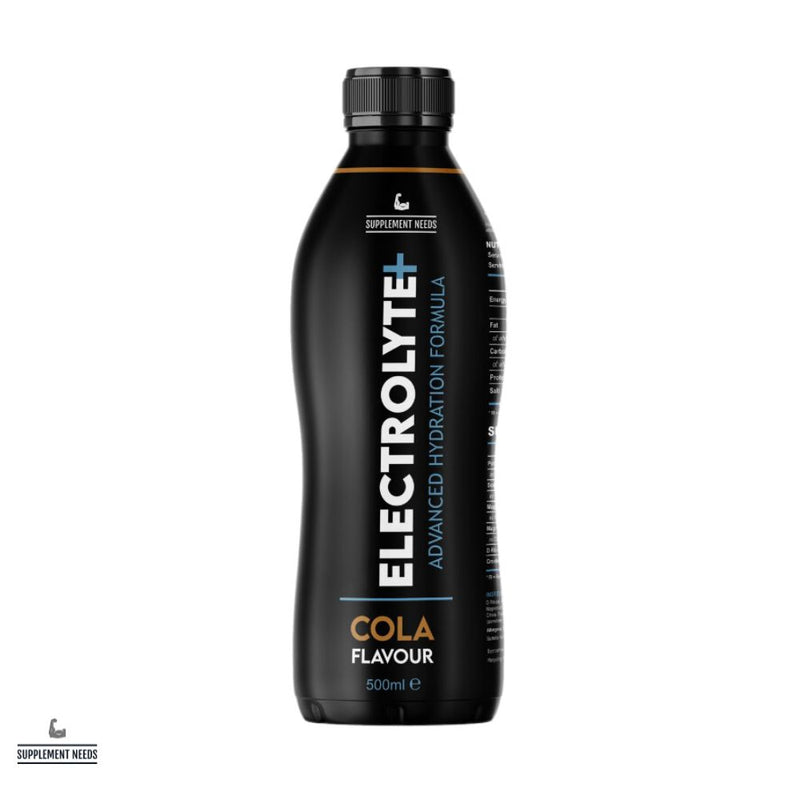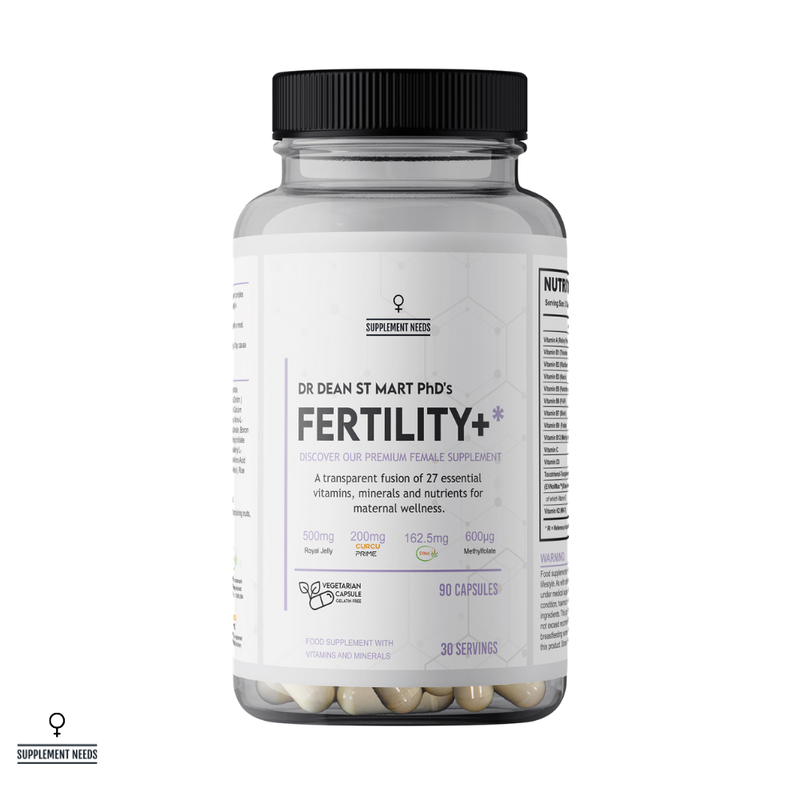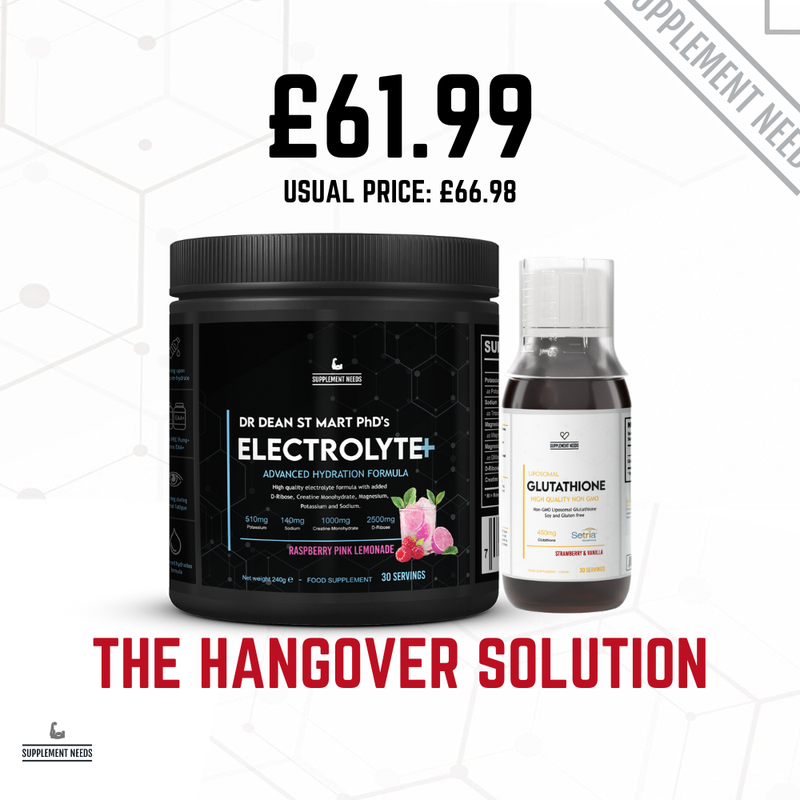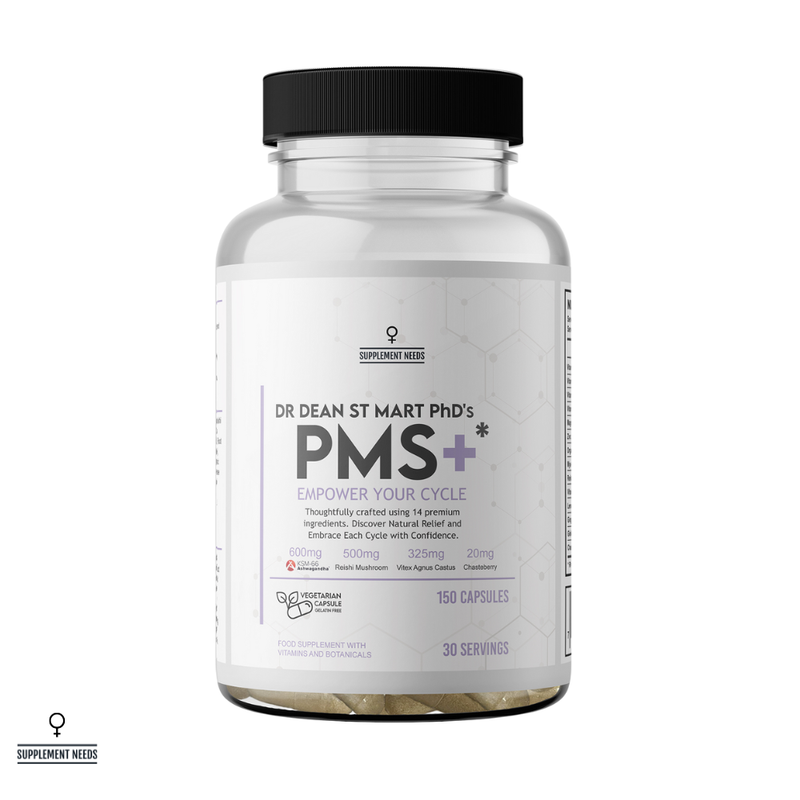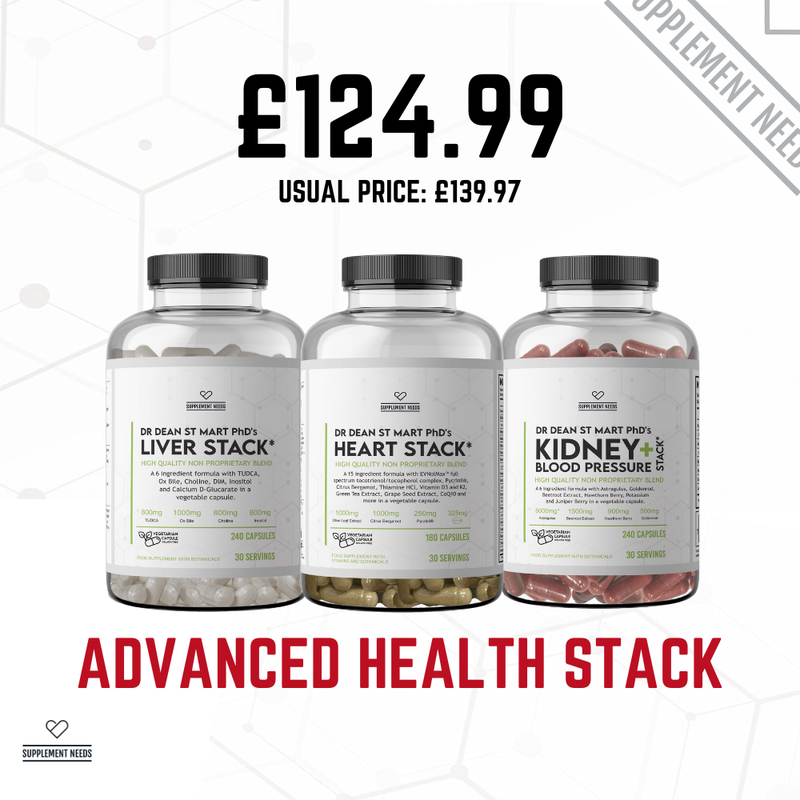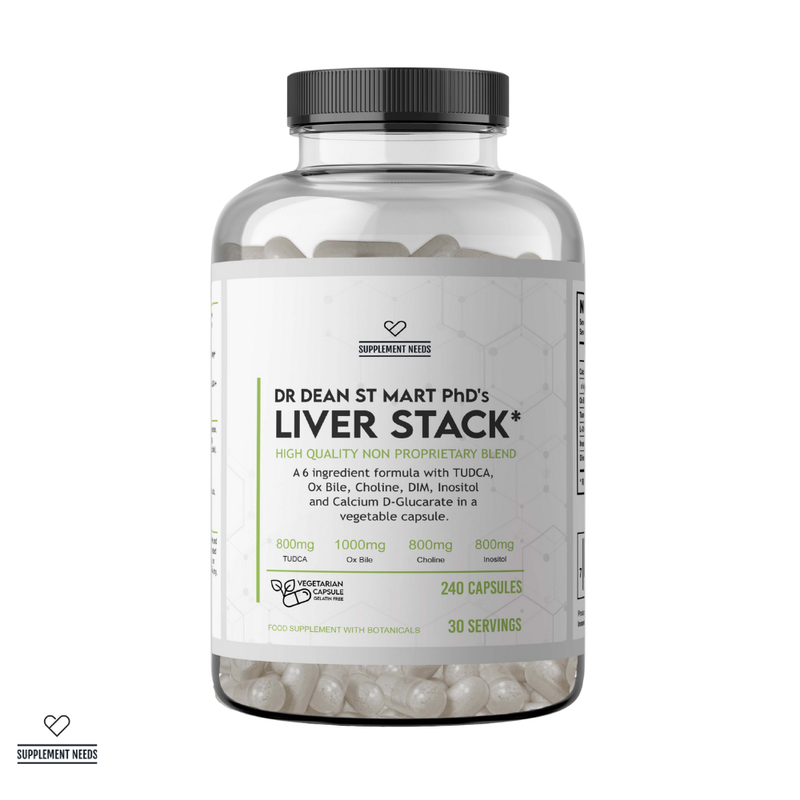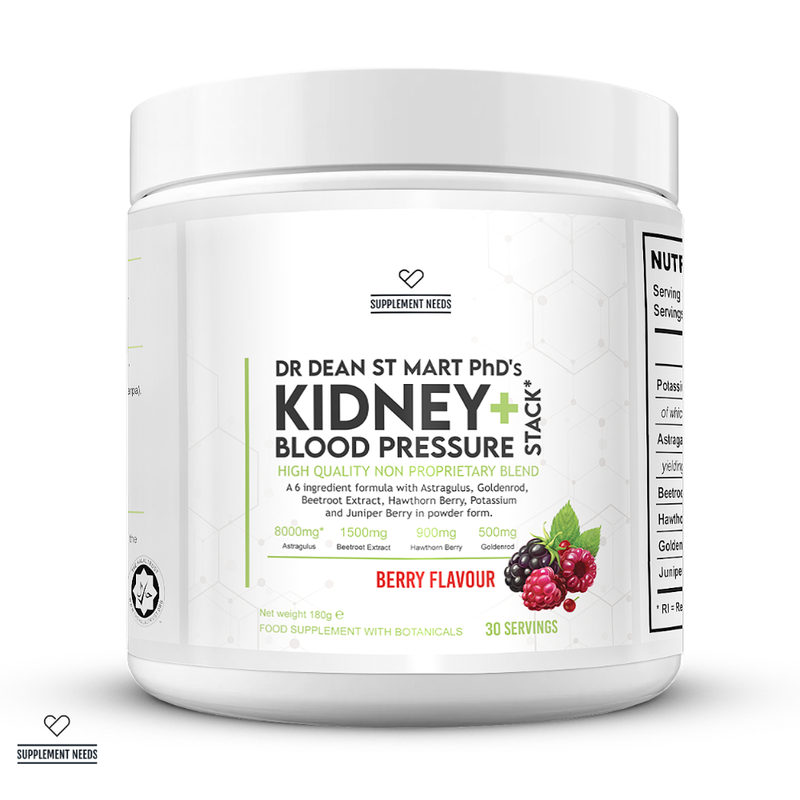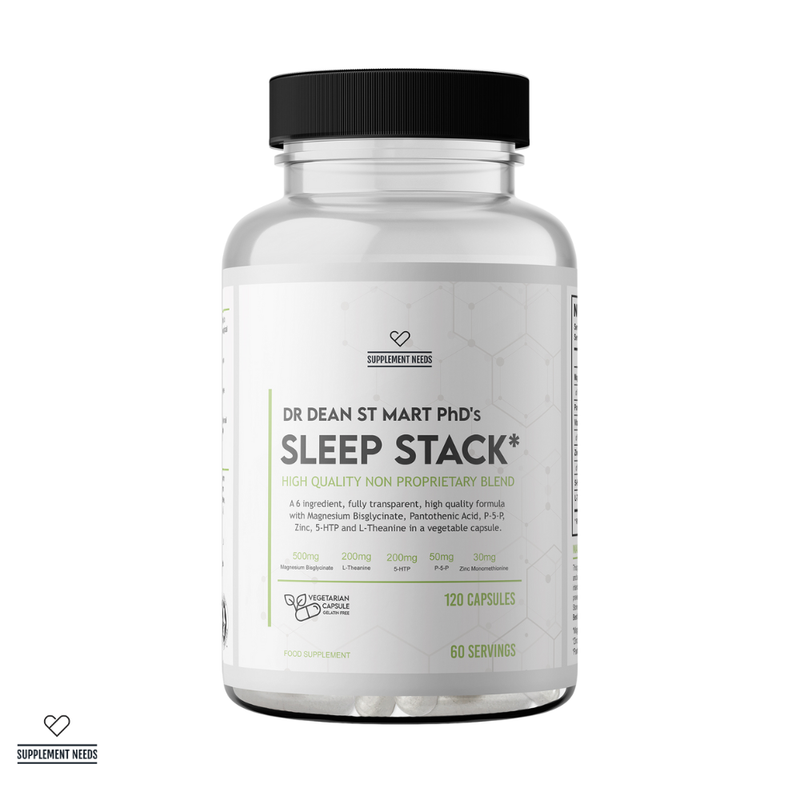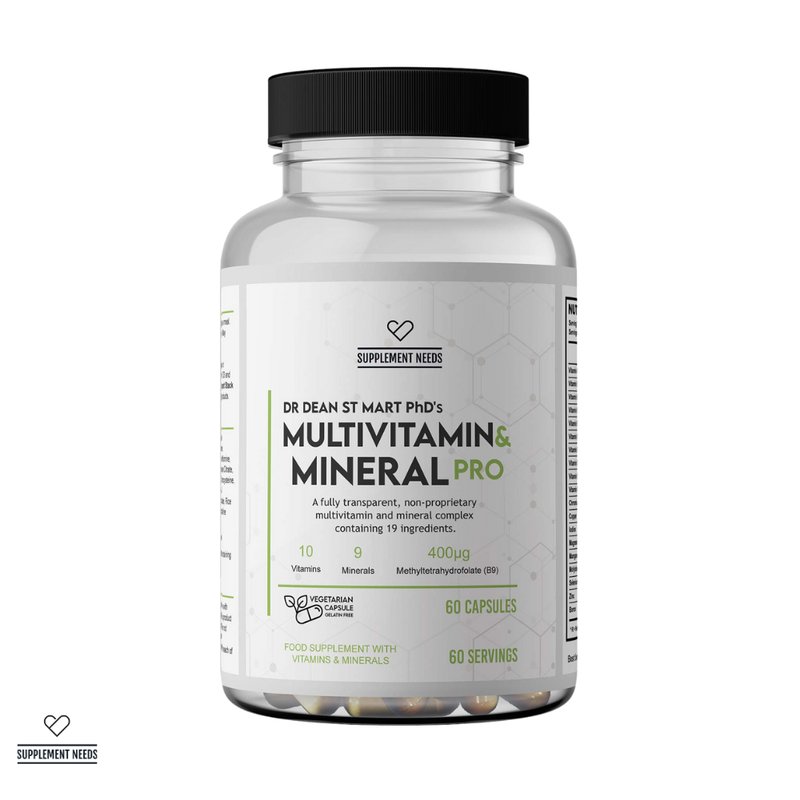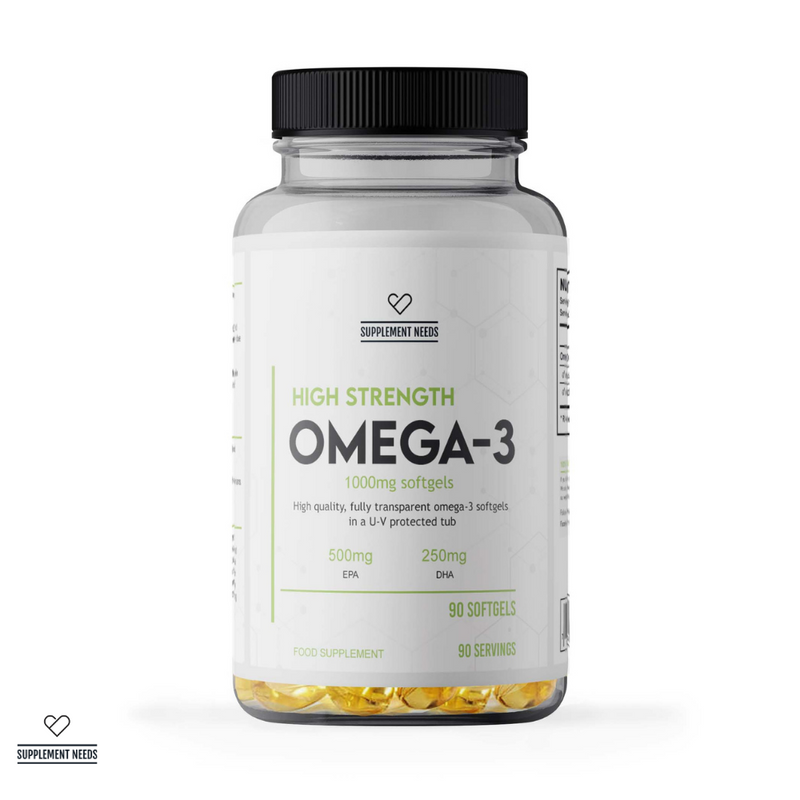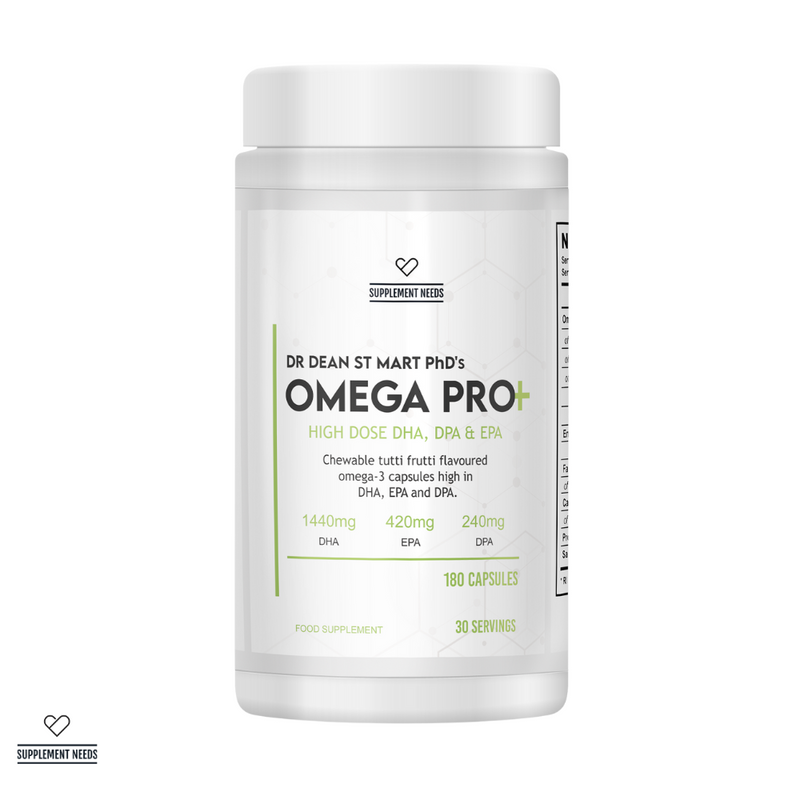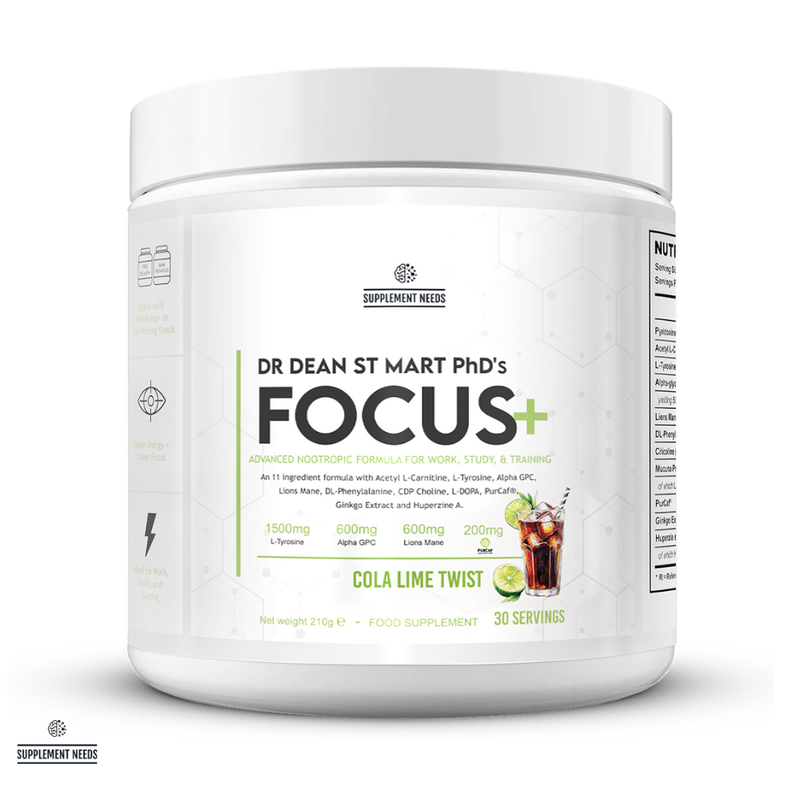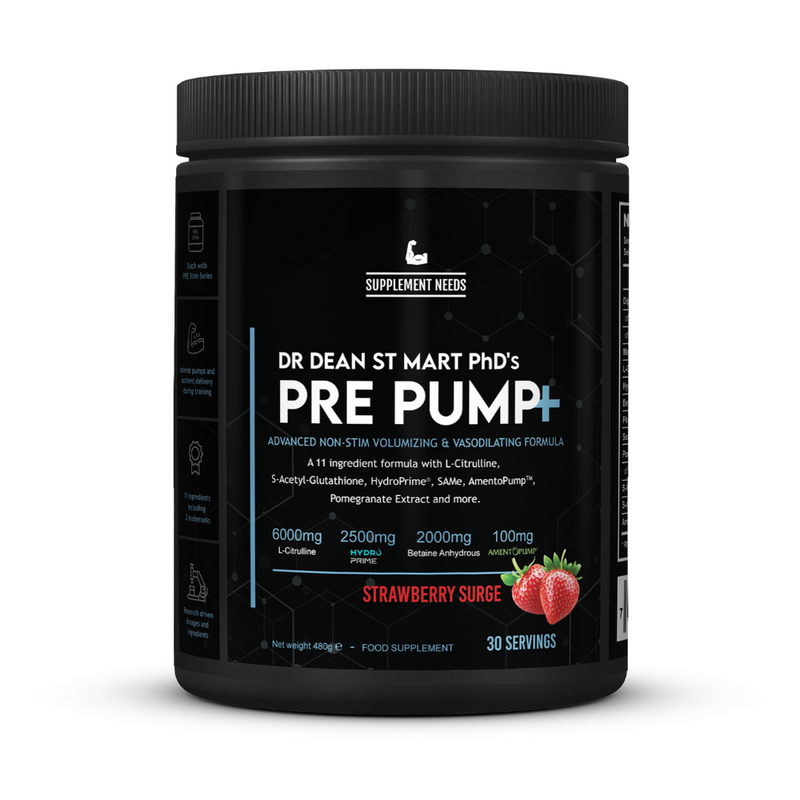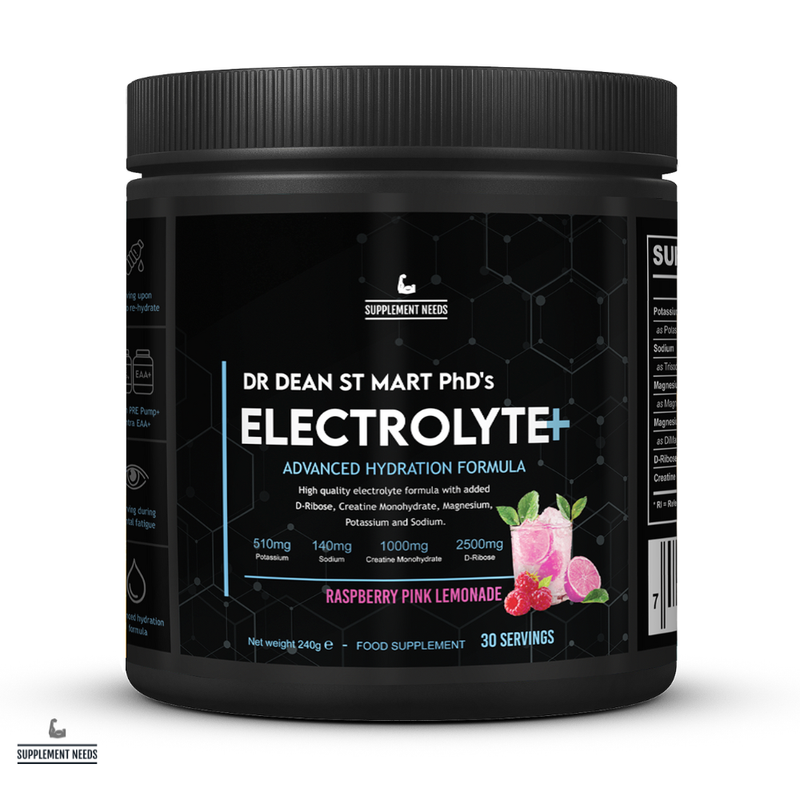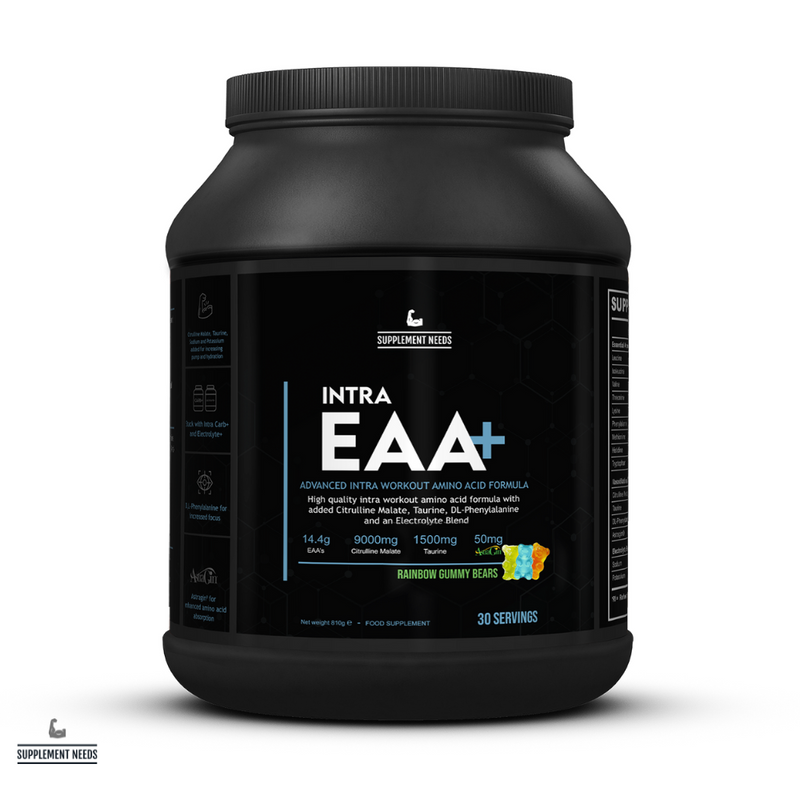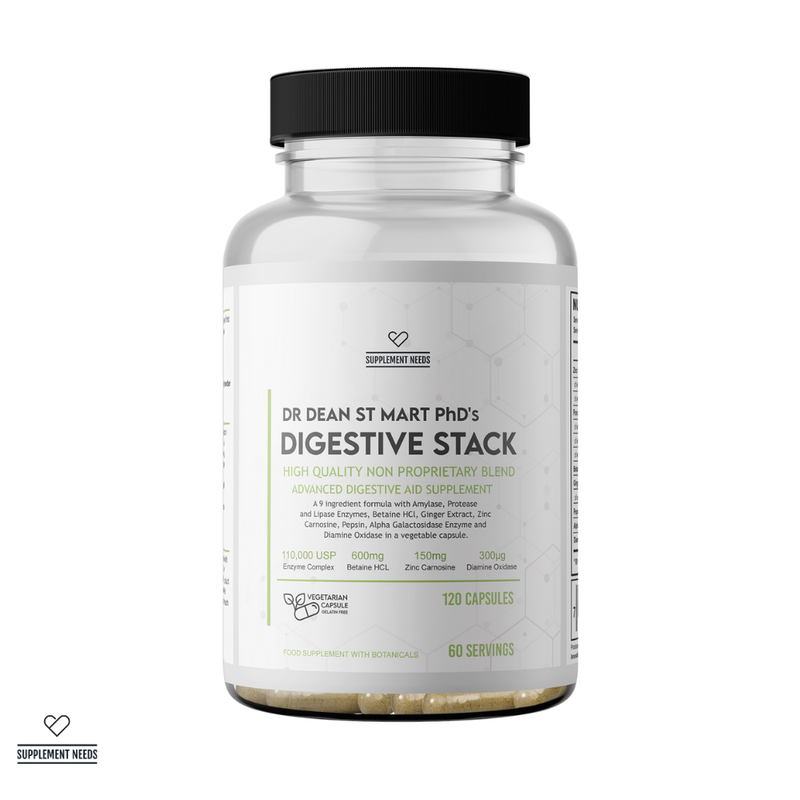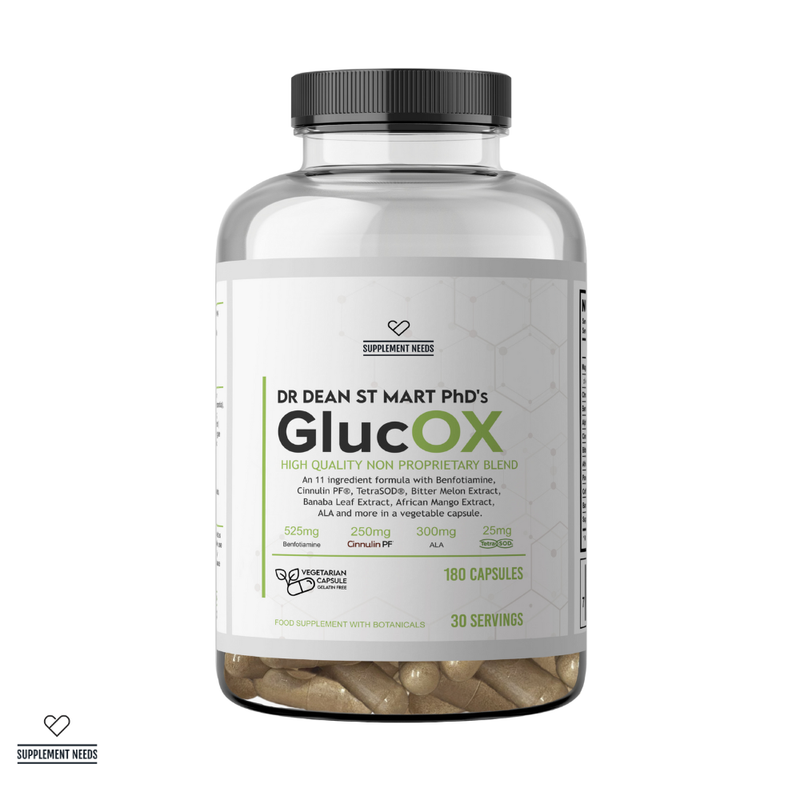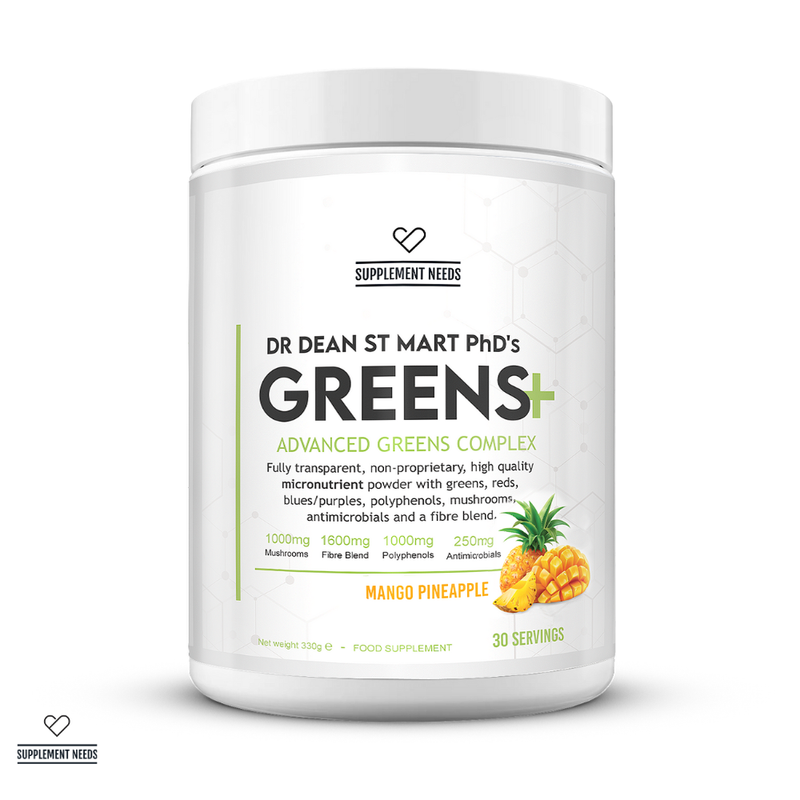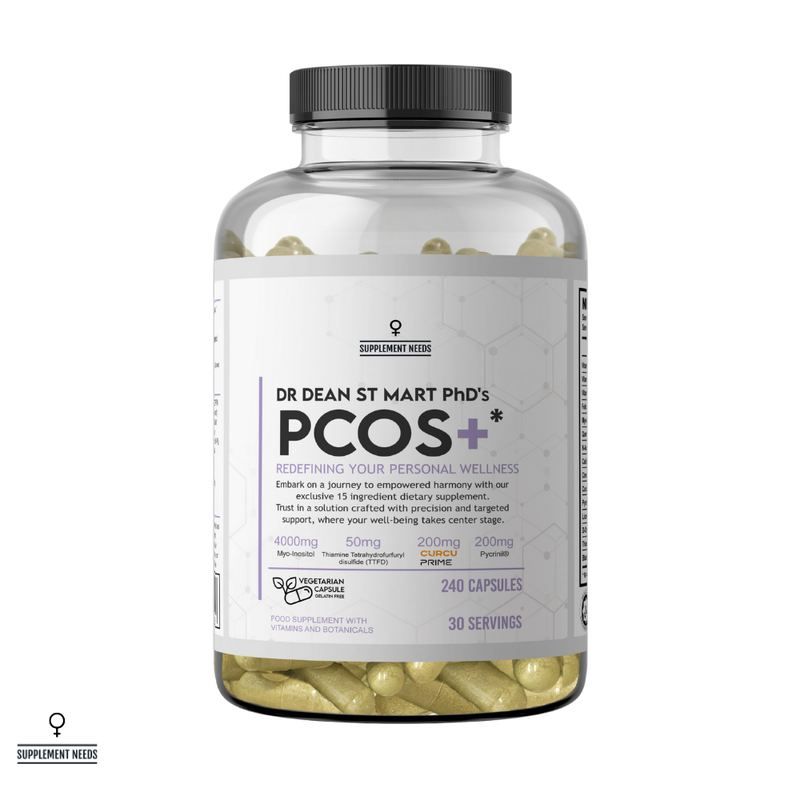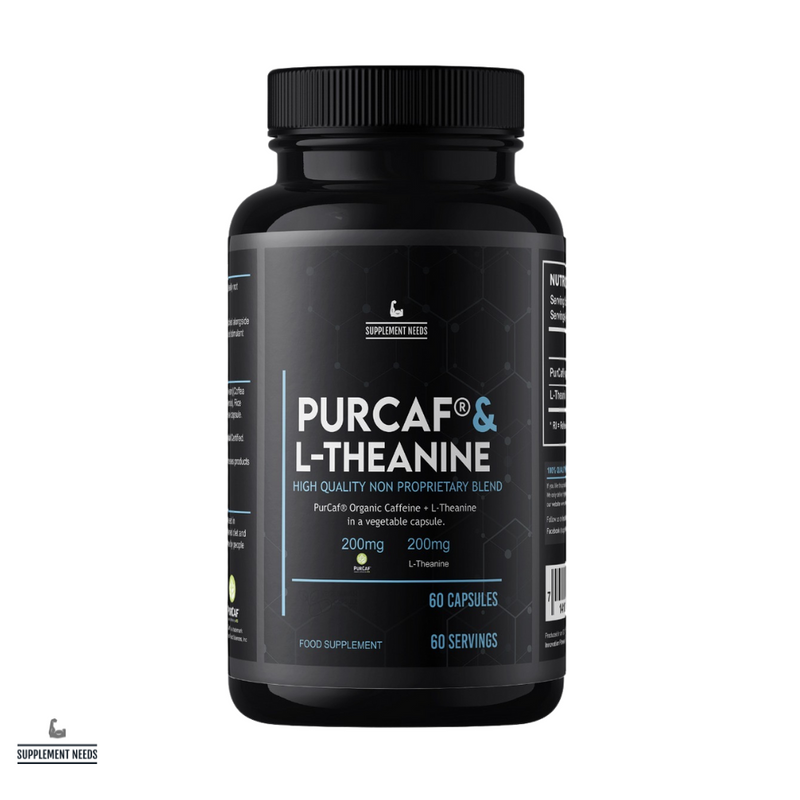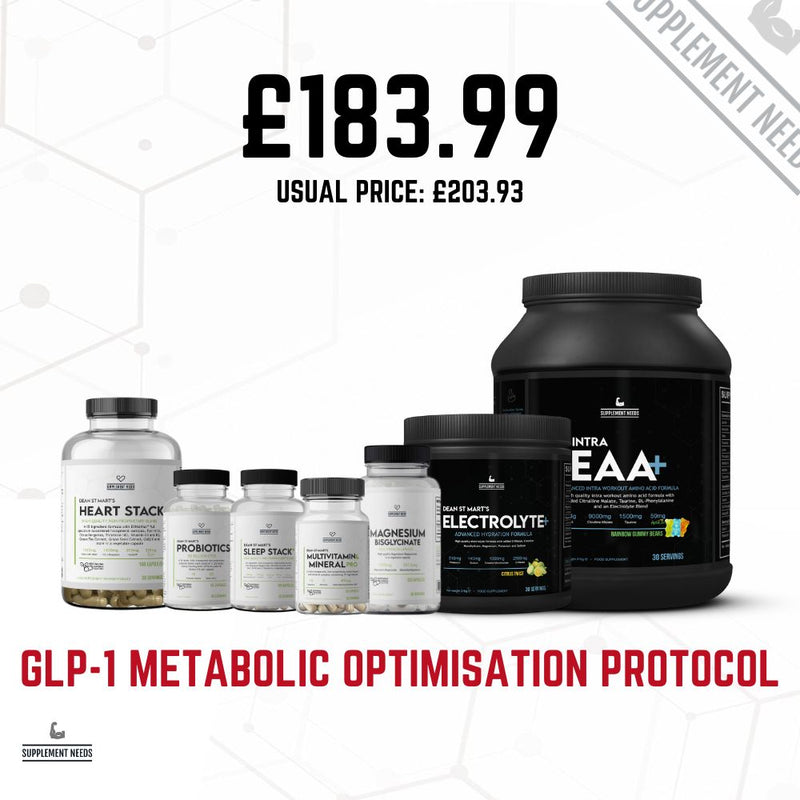Few things in life are quite so wearisome as the feeling of being unproductive. Adrift on the quagmire of lethargy with the increasing demands and pressures to keep up in an increasingly competitive and productive society, it’s no wonder that more and more people are succumbing to a state of ennui. But does it have to be the case? Perhaps not. In this article, we’ll jump into the subject of productivity supplements, discuss how they work, and the evidence base that underpins them. Keep reading to find out more…
The challenges of mental fatigue
There are a number of reasons that you may become unproductive. Cognitive decline, lack of energy, high stress levels, loneliness, and poor sleep - just to name a few - each contributes to a listlessness that is hard to break out from.
The Germans have a word for this. Lebensmüde1 - meaning “life-tired” - which certainly captures the feeling of staring down a mountain of work with nary the energy to take the first step.
But, what is actually happening to your body when you feel this way?
The brain is a complex network of neurons that communicate across different regions for optimal performance. These different regions of the brain provide different functions, such as the dorsal lateral prefrontal cortex for reasoning and planning, and the ventromedial and orbital frontal cortex for evaluating options, emotions, and regulation2.
These regions work together, not in isolation, to keep your brain functioning properly. But when mental fatigue hits, it causes a ripple effect throughout the brain.
Here, we need to introduce the concept of mental load, which in turn can be explained by understanding processing capacity and perceptual load:
-
Processing capacity is the amount of information an individual can process at any given moment3.
-
Perceptual load is associated with the amount of information involved in processing a relevant task4.
When our processing capacity is reached, and our perceptual load is filled, this impacts our mental load5.
This can lead to the feeling of being overwhelmed, which in turn brings on exhaustion and potential burnout.
Imbalances in neurotransmitters like dopamine and serotonin can impact motivation, alertness, and the brain's ability to shift between tasks6.
All of this leaves the mind is a poor state. Concentration, focus, memory, and decision-making are all impacted, which in turn causes a snowball effect as productivity declines further.
In this state, the body starts to crave external stimuli to get its dopamine and serotonin fixes. Alcohol, smoking, social media, and food cravings might feel like a good idea at the time, but only serve to make your mental state worse.
How to increase productivity
The answer is threefold: a healthy lifestyle, a positive mindset, and proper supplementation.
A healthy lifestyle, combining regular exercise and a varied, nutritious diet, is the first and most important step.
Regular exercise has been shown to boost energy levels, improve your mindset, and help you to live longer7.
Eating a well-balanced, nutritious diet can help to improve your concentration and attention span8.
The next step is a healthy mindset. Having a positive attitude, resilience, and adaptability helps to manage stress, improve focus, and improve decision-making.
One method to grow and improve a positive mindset is the PERMA model, designed by psychologist, Martin Seligman9. This mindset addressed five essential components of wellbeing:
-
Positive emotion: satisfaction and contentment.
-
Engagement: commitment to an activity.
-
Relationships: strong social connections.
-
Meaning: a feeling of purpose and direction.
-
Accomplishments: a sense of achievement.
Working on these five components can assist in the development of a positive mindset, which in turn can help in the fight against mental fatigue.
Another approach to mental wellbeing that gained credence in psychology circles over the latter half of the twentieth century is the ‘hierarchy of needs’, formulated by Abraham Maslow.10
Under this theory, one can become ‘fulfilled’ only if a series of needs are met. These needs were defined by Maslow as:
-
Physiological needs: these are the fundamental biological requirements for survival (e.g. food, water, shelter).
-
Safety needs: these needs refer to security and predictability in your environment (e.g. personal security, financial security).
-
Love and belonging: this refers to social connection and acceptance (e.g. family relations, friendship, romantic relationships).
-
Esteem: this refers to recognition, competence, and respect (e.g. self respect, the respect of others, recognition of your achievements).
-
Self actualisation: this refers to fulfilling your full potential and encompasses creativity, personal growth, the pursuit of meaning.
Although these frameworks can be very helpful, it’s important to remember there are myriad issues that may impact one’s mental wellbeing. A solution for one person may not work for another, so it’s always recommended to speak with a professional.
Last, but not least, we have the matter of supplementation.
Supplements act as a support system for the brain and body, infusing our diet with nutrients essential for clear thinking and steady energy.
Nutrients such as Omega-3 fatty acids11, B Vitamins, and Vitamin D12 are widely acclaimed for their positive impact on brain health and energy production.
It is important, however, to stress that these enhancers are a supportive measure. They do not, and should not, replace a balanced, varied diet, or a regular routine of exercise. Their efficacy will vary depending on the nutritional status and needs of the individual.
With that in mind, let’s take a deep dive into the role of supplements, and their potential to improve productivity.
A deep dive into productivity supplements
To understand the benefits of supplementation, let’s break it down by the key areas that they provide assistance: cognitive improvement, stress management, energy enhancement, and sleep quality.
Cognitive improvement
When we speak about cognitive improvement, we can break this down to three elements: focus, memory, and clarity. These three elements are key to a productive mindset, yet without due care and consideration, they can be left wanting.
In this case, supplementation offers a convenient solution to help the mind feel on top form:
Omega-3 fatty acids
As we’ve written previously, Omega-3 fatty acids support a vast array of processes within your body, being a vital part of your cell membranes, helping all the cells in your body function and communicate properly.
They provide enormous assistance to the brain, helping maintain the integrity of neuronal membranes and curb inflammation, which is vital for memory and focus.
There are eleven main types of Omega-3 fatty acids, yet the three most important in human physiology are:
-
EPA (eicosapentaenoic acid).
-
DHA (docosahexaenoic acid).
-
ALA (alpha-linolenic acid).
These three are the most essential Omega-3 fatty acids because of the crucial role they play in various bodily functions, including heart health, brain development, and inflammation reduction13.
EPA and DHA are commonly found in fish, whereas ALA is found in plants. Diets rich in Omega‑3s have long been associated with lower rates of cognitive decline.
There exists a wealth of evidence to support the link between Omega-3 intake and neurological health. For example, one systematic review14 of the extant studies on Omega-3 and brain health concluded that:
‘Consumption of omega-3 improved learning, memory ability, cognitive well-being, and blood flow in the brain. Omega-3 therapies are beneficial, well-tolerated, and very low-risk. Lonelier people, the elderly, and people with less consumption of healthy foods containing omega-3 can benefit from the consumption of omega-3 supplements’.
In addition to supporting cognition, studies have also indicated that Omega-3 supplementation may potentially ward off neurodegenerative diseases like Alzheimer’s thanks to Omega-3’s anti-inflammatory and antioxidant properties15.
If you’re interested in exploring the potential benefits of Omega-3 supplementation, then explore the Omega-3 range here at Supplement Needs.



For vegetarians and vegans, Supplement Needs has Omegavie, a Vegan Omega-3 formula that provides DHA and EPA derived from algae sources.
B Vitamins
B Vitamins play myriad roles within the body and are necessary for the production of energy and neurotransmitter synthesis. They help transform food into energy and play a big role in regulating mood and concentration.
B vitamins are a group of eight water-soluble vitamins16:
-
B1 (Thiamin) helps with carbohydrate metabolism and nerve function.
-
B2 (Riboflavin) helps with energy production, and protects against free radical damage.
-
B3 (Niacin) helps with energy production, metabolism, and brain function.
-
B5 (Pantothenic acid) is essential for energy metabolism, hormone synthesis, and nerve function.
-
B6 (B6 takes three distinct forms - Pyridoxal, Pyridoxine, and Pyridoxamine) helps with protein metabolism, brain function, and immune function.
-
B7 (Biotin) is important for energy metabolism, cell growth, and hair and nail health.
-
B9 (Folate) is essential for cell growth and development, especially for red blood cells and DNA synthesis.
-
B12 (Cobalamin) is essential for nerve function, red blood cell formation, and DNA synthesis.
A deficiency in these vital nutrients can lead to fatigue and impaired cognitive performance, so it is important to ensure that daily intake is achieved.
Studies have shown this link between B Vitamin intake and overall neurological and brain health. As one study concluded17:
‘The B Vitamins represent a group of eight essential dietary micronutrients that work closely in concert at a cellular level and which are absolutely essential for every aspect of brain function’.
Furthermore, in addition to supporting healthy neurological function, there is evidence to suggest that B Vitamins can also help combat the development of neurodegenerative diseases:
‘Vitamins are vital for preventing and treating neurodegenerative diseases. Their varied roles - including antioxidant functions, anti-inflammatory properties, and the regulation of neurotransmitter production - underscore their potential as adjunct therapies in neurological conditions’.
If you want to try Vitamin B supplementation for yourself, then Supplement Needs offers a selection of supplements rich with B Vitamins.

Our Vitamin B Complex is formulated used eight B Vitamins to specifically aid in ensuring daily health is optimised.

For a wider scope of multivitamin and mineral support, there is the Supplement Needs Multivitamin and Mineral Pro, which provides a number of vitamins and minerals to complement the everyday demands of the body.

For vegans, and vegetarians, the Vegan Multivitamin and Mineral Pro provides a targeted dose of B vitamins, and other necessary vitamins that a vegan diet commonly lacks.
L-theanine and caffeine
Caffeine is a drug that needs no introduction. Found in coffee, tea, energy drinks, chocolate, and other popular products, it increases the activity of the brain and the nervous system to provide a boost of clarity and mental sharpness.
This burst of clarity is achieved thanks to the antagonistic action caffeine plays on the A2A adenosine receptor (A2AR)18, a type of G protein-couple receptor that assists in various physiological and pathologic processes.
On its own, caffeine provides the necessary jolt to ward off tiredness, but when combined with L-Theanine, it provides a smoother, sustained focus with reduced jitteriness.
Studies have shown that a combination of L-Theanine and caffeine improved focus during demanding tasks,19 highlighting the efficacy of this combination.
One wide ranging systematic review of the scientific literature found that L-Theanine in particular has a ‘neuroprotective effect by its action on the gamma aminobutyric acid (GABA)-A receptors’20.

The Supplement Needs Purcaf & L-Theanine capsules combine the trademarked Organic Caffeine PurCaf with the amino acid L-Theanine to provide a stimulant burst to your day. Formulated by Dr Dean St Mart PhD, Purcaf & L-Theanine has been designed to provide a mental boost, but with the addition of L-Theanine to help modulate the action of the organic caffeine.
Stress management
Stress is unfortunately all too common in this day and age, so it’s important to find ways to actively manage and regulate your stress levels.
Aside from healthy lifestyle and a positive mindset, supplements can assist in the management of stress through a number of different ways:
Magnesium
Magnesium is an important mineral that provides essential assistance to numerous functions and processes in the body, including heart and bone health, muscle function, blood sugar control, sleep quality, and stress management.
When we experience stress, our levels of Magnesium decrease as the mineral stores in our kidneys are depleted21. The fallout is cyclical, as a lack of Magnesium can lead to headaches, nausea, fatigue, and weakness, which can in turn cause greater stress.
Incorporating Magnesium supplementation into a routine can help to replenish the store of Magnesium, which in turn assists the in the management of stress level.
For the purposes of this article, you should note the link between Magnesium intake and its role in maintaining brain homeostasis. Within the brain, Magnesium helps to harmonise nerve signal transmission and also preserves the integrity of the all-important blood/brain barrier. Furthermore, Magnesium is potentially linked to preventing brain tissue damage and combating neurodegenerative diseases:
‘Solid evidence suggests a role of Mg in taming neuroinflammation and in retarding some neurodegenerative diseases. Therefore, a correct and, if possible, personalised dietary intake of Mg might represent a preventative measure, whereas supplementing Mg might be an adjunct option in neurodegeneration’22.

Supplement Needs Magnesium Bisglycinate capsules are an excellent source of magnesium, ensuring daily health and mineral balance is optimised. What’s particularly important to note about Supplement Needs’ Magnesium Bisglycinate is that it’s a chelated form of Magnesium, meaning that it has been bonded with an organic amino acid. This makes it far more likely that the Magnesium will be absorbed through the wall of your small intestine and be utilised by your body. That’s why it’s important to avoid cheap multivitamins and minerals that are rarely chelated.
Adaptogens
Adaptogens, like Ashwagandha and Rhodiola, offer the promise of homeostasis by increasing or decreasing chemical reactions within your body. Found in certain plants and mushrooms, they help with the body’s management of stress, anxiety, and fatigue23.
As we’ve highlighted previously, Ashwagandha has a positive effect on the endocrine, nervous, immune and cardiovascular systems by regulating your metabolism. It has been linked with lower cortisol levels, supporting a steadier mood and sharper focus amid stress24.
Indeed, some studies25 have suggested that Ashwagandha may have a moderating effect on mental illnesses such as anxiety, depression, ADHD, and addictive disorders.
Rhodiola can assist in reducing mental fatigue, anxiety, and depression. Studies have found that Rhodiola helps improve performance during particularly demanding tasks26. Emerging studies also suggest that Rhodiola may help to alleviate stress and contribute to stress management:
‘Rhodiola rosea extract (RRE) fulfils important requirements. It is the main adaptogen approved by the HMPC/EMA for the indication ‘stress’ and influences the release of stress hormones while boosting energy metabolism as revealed in animal literature. RRE offers comprehensive treatment of stress symptoms and can prevent chronic stress and stress-related complications’27.

Supplement Needs Ashwagandha Organic Vegan KSM-66 capsules provide an excellent vegan-friendly option for those seeking to prime the body and mind against daily stress and try supplementing their diet with Ashwagandha. Importantly, Supplement Needs Ashwagandha makes use of the proprietary KSM-66 variant which is underpinned by a sizable evidence base.

Additionally, the Supplement Needs AM Priming Stack is formulated to contain a range of adaptogens, including Ashwagandha and Rhodiola for a broader spectrum of adaptogen support.
Coming soon! We will soon be launching a new nootropic supplement called Focus+. Available in three delicious flavours, Strawberry Surge, Lemon Sherbert, and Cola Lime Twist, it’s packed with adaptogens and other ingredients that will help your focus and concentration - L-Tyrosine, Alpha GPC, and Lions Mane. Sign up to our mailing list to be the first to know when it launches.
Vitamin D
As the body creates it when skin is in direct sunlight, Vitamin D is one of the most overlooked vitamins to maintain and supplement. Yet as more of our daily routine is spent indoors, it’s important to ensure the body is getting enough of this vital vitamin.
Responsible for keeping bones, teeth, and muscles healthy, and regulating the amount of calcium and phosphate in the body, a lack of Vitamin D can lead to bone deformities in children, and bone pain in adults.
Studies have found that the relationship between Vitamin D levels and stress is not insubstantial, with supplementation seeming to improve resilience to stress28. Vitamin D has also been highlighted in studies as a potential neuroprotective agent, - this is likely due to its ability to reduce oxidative stress and inflammation29.
Children and adults need 10 micrograms of Vitamin D every day30. Between the months of March and September, this can be achieved through direct sunlight outdoors, but from October to March, this is not possible.

For those looking for supplementation of Vitamin D, the Supplement Needs Vitamin D3 and K2 (Mk-7) is a great option. Note, that Supplement Needs’ Vitamin D stands out - as it delivers the active form of Vitamin D (D3) along with Vitamin K2 that enhances calcium absorption.
Energy enhancement
In the modern world, it can feel like a constant battle to retain energy levels. Diet, sleep, exercise, and hydration each have a big influence over energy levels in the body, the combination of which can feel like a full-time job just to maintain.
Supplementation could potentially assist you in this area, providing the necessary boost to keep your mind and body alert when you need it:
Coenzyme Q10
Coenzyme Q10 (CoQ10) also known as ubiquinone, is a naturally occurring biochemical cofactor and an antioxidant produced by the human body.
It provides numerous benefits, particularly for heart health and migraine prevention, yet CoQ10 is essential for the production of adenosine triphosphate (ATP), which is the primary energy source for cells.
While your body does naturally make CoQ10, the levels it can create gradually decrease over time as you get older31. With its pivotal role in mitochondrial function, low levels of CoQ10 have been associated with fatigue.
Therefore, supplementation, especially in older people, is an effective way to maintain optimum levels of CoQ10. Furthermore, there are studies which have suggested a link between CoQ10 and neuroprotective effects. One study concludes that:
‘CoQ10 as an antioxidant and neuroprotective agent can play a role in the treatment of neurological disorders. Although neurological diseases cannot be treated effectively, CoQ10 deficiency is involved in the pathogenesis of epilepsy, stroke, MS, depression, PD, AD, LHON, ARCA2, and SCAR9.32’

Supplement Needs Liposomal CoQ10 has been specifically designed to aid in ensuring optimal absorption of CoQ10.
Creatine
Though it is often associated with strength building in the gym, creatine also possesses potential in enhancing mental endurance.
Creatine is a natural source of energy that helps create a steady supply of energy in the muscles. The muscles convert creatine into a compound of creatine and phosphoric acid (phosphocreatine or creatine phosphate).
Phosphocreatine helps create adenosine triphosphate (ATP) - a source of energy that the cells use when exercising.
Creatine also increases the amount of phosphocreatine in the brain, which can improve memory, and brain function33.
In fact, there’s a surprisingly large amount of evidence that supports the assertion that creatine supplementation may benefit cognitive function in adults. One meta-analysis was particularly positive about this association, concluding:
‘Current evidence suggests that creatine monohydrate supplementation may confer beneficial effects on cognitive function in adults, particularly in the domains of memory, attention time, and information processing speed’34.

If you’re considering adding creatine to your diet to potentially enhance your energy levels then check out Supplement Needs Creatine Monohydrate powder. Formulated by leading industry expert Dr Dean St Mart PhD, it provides a formulated yield of creatine monohydrate, ensuring that creatine levels stay optimised.
Sleep quality
One of the biggest impactors on productivity is a good night’s sleep. However, there are myriad factors that can impact the quality of that vital downtime.
Of all the stages of sleep, deep sleep is considered the most important for overall well-being. On average, most adults need between one and two hours of deep sleep per night.
A lack of quality sleep doesn’t just affect your daily energy levels, it can increase your risk of obesity, high blood pressure, type 2 diabetes, cardiovascular disease, and depression35.
Alongside healthy eating, exercise, and a good sleeping environment, supplements can assist in getting the most out of those hours of sleep:
Zinc and magnesium
Zinc is a mineral that is found throughout the body, helping the body’s immune system and metabolism work correctly. It is important for healing wounds, and assists with the sense of taste.
Studies have shown that a daily dose of zinc supplementation pointed to a significant improvement in sleep quality compared to those without36.
People who eat a healthy, varied diet typically get enough zinc, though that may not always be the case.
A zinc deficiency can manifest in various ways, including an impaired sense of taste and smell, hair loss, a reduced appetite, and fatigue. However, as the science is increasingly showing, Zinc plays a larger role in sleep than previously thought. One study characterised the link between Zinc and sleep as follows:
‘Although Zinc ion was of little interest to the scientific community for a long time, accumulating evidence proves that endogenous Zinc as well as available dietary Zinc is of high importance, not only as an enzyme cofactor but also as a signalling molecule. One of the most unexpected functions of Zinc to date may be in the regulation of sleep, an essential physiological function shared by the entire animal kingdom’37.
We’ve already covered the huge impact magnesium has on the body, and the consequences of a magnesium deficiency. The fallout of this stretches to the sleep cycle, impacting the amount of quality sleep received every night.

For those looking to maximise their quality of sleep, the Supplement Needs Sleep Stack is an excellent option. Containing Zinc, Magnesium, and the amino acid L-Theanine, Sleep Stack has been designed to complement the biochemistry of sleep, and support the body’s ability to naturally fall asleep, and stay asleep.
Supplement Needs: the perfect solution for productivity
Balancing your bodily requirements with a busy lifestyle can be challenging, yet with the power of supplementation, it doesn’t have to be.
At Supplement Needs, we have a spectacular selection of supplements carefully designed to provide the vitamins and minerals at efficacious doses to live a healthy life.
Formulated by Dr Dean St Mart PhD, an industry-leader in supplementation, our range addresses every aspect of dietary supplementation to help you get the most out of your productivity needs.
Shop premium productivity supplements today
For more insights and information about supplements, read the Supplement Needs blog…
Everything You Need to Know About Curcumin | Why You Should Avoid Cheap Omega 3 Supplements | Maintaining Kidney Health: What You Need to Know
Disclaimer
The information contained on this website should not be used as a substitute for professional medical care or advice. If you have questions about your health, please contact your doctor.
References
1. Cambridge Dictionary. Lebensmude [online]. Available at: https://dictionary.cambridge.org/de/worterbuch/deutsch-englisch/lebensmude (Accessed on 16th June 2025).
2. Kok A. Cognitive control, motivation and fatigue: A cognitive neuroscience perspective. Brain Cogn. 2022 Jul [online]. Available at: https://pubmed.ncbi.nlm.nih.gov/35617813/ (Accessed on 6th June 2025).
3. Halford G, Wilson W, Philips S. Processing capacity defined by relational complexity: implications for comparative, developmental, and cognitive psychology [online]. Available at: https://pubmed.ncbi.nlm.nih.gov/10191879/ (Accessed on 16th June 2025).
4. Lavie N, Beck D, Konstantinou N. Blinded by the load: attention, awareness and the role of perceptual load [online]. Available at: https://pmc.ncbi.nlm.nih.gov/articles/PMC3965161/ (Accessed on 16th June 2025).
5. Kunasegaran K, Ismail AMH, Ramasamy S, Gnanou JV, Caszo BA, Chen PL. Understanding mental fatigue and its detection: a comparative analysis of assessments and tools. PeerJ. 2023 Aug 23 [online]. Available at: https://pmc.ncbi.nlm.nih.gov/articles/PMC10460155/ (Accessed on 6th June 2025).
6. Calm. Mentally exhausted? Here's 10 ways to overcome mental fatigue [online]. Available at: https://www.calm.com/blog/mental-fatigue (Accessed on 6th June 2025).
7. Ruegsegger GN, Booth FW. Health Benefits of Exercise. Cold Spring Harb Perspect Med. 2018 Jul 2 [online]. Available at: https://pmc.ncbi.nlm.nih.gov/articles/PMC6027933/ (Accessed on 6th June 2025).
8. Sutter Health. Eating Well for Mental Health [online]. Available at: https://www.sutterhealth.org/health/eating-well-for-mental-health (Accessed on 6th June 2025).
9. Pennock S. Who Is Martin Seligman and What Does He Do? [online]. Available at: https://positivepsychology.com/who-is-martin-seligman/#the-perma-model (Accessed on 9th June 2025).
10. Wikipedia. Maslow’s hierarchy of needs [online]. Available at: https://en.wikipedia.org/wiki/Maslow%27s_hierarchy_of_needs (Accessed on 16th June 2025).
11. Witte A, Kerti L, Hermannstädter H, et. al. Long-Chain Omega-3 Fatty Acids Improve Brain Function and Structure in Older Adults [online]. Available at: https://academic.oup.com/cercor/article-abstract/24/11/3059/304487 (Accessed on 16th June 2025).
12. AlGhamdi S. Effectiveness of Vitamin D on Neurological and Mental Disorders [online]. Available at: https://www.mdpi.com/2079-9721/12/6/131 (Accessed on 16th June 2025).
13. Guðný Hjálmarsdóttir, F. The 3 Most Important Types of Omega-3 Fatty Acids [online]. Available at: https://www.healthline.com/nutrition/3-types-of-omega-3 (Accessed on 9th June 2025).
14. Dighriri I, Alsubaie A, Hakami F, et. al. Effects of Omega-3 Polyunsaturated Fatty Acids on Brain Functions: A Systematic Review [online]. Available at: https://pmc.ncbi.nlm.nih.gov/articles/PMC9641984/ (Accessed on 16th June 2025).
15. Wesoɬowska W, Bachoń E, Doligalska M, et. al. Omega-3 Fatty Acids: Key Players in Cognitive Function and Brain Health [online]. Available at: https://apcz.umk.pl/JEHS/article/view/56776 (Accessed on 16th June 2025).
16. Wikipedia. B Vitamins [online]. Available at: https://en.wikipedia.org/wiki/B_vitamins (Accessed on 9th June 2025).
17. Kennedy D. B Vitamins and the Brain: Mechanisms, Dose and Efficacy - A Review [online]. Available at: https://pmc.ncbi.nlm.nih.gov/articles/PMC4772032/ (Accessed on 16th June 2025).
18. Lazarus M, Shen HY, Cherasse Y, Qu WM, Huang ZL, Bass CE, Winsky-Sommerer R, Semba K, Fredholm BB, Boison D, Hayaishi O, Urade Y, Chen JF. Arousal effect of caffeine depends on adenosine A2A receptors in the shell of the nucleus accumbens. J Neurosci. 2011 Jul 6 [online]. Available at: https://pmc.ncbi.nlm.nih.gov/articles/PMC3153505/ (Accessed on 9th June 2025).
19. Giesbrecht T, Rycroft JA, Rowson MJ, De Bruin EA. The combination of L-theanine and caffeine improves cognitive performance and increases subjective alertness. Nutr Neurosci. 2010 Dec 13 [online]. Available at: https://pubmed.ncbi.nlm.nih.gov/21040626/ (Accessed on 9th June 2025).
20. Sohall A, Ortiz J, Varghese T, et. al. The Cognitive-Enhancing Outcomes of Caffeine and L-Theanine: A Systematic Review [online]. Available at: https://www.researchgate.net/publication/357439288_The_Cognitive-Enhancing_Outcomes_of_Caffeine_and_L-theanine_A_Systematic_Review (Accessed on 16th June 2025).
21. Pickering G, Mazur A, Trousselard M, Bienkowski P, Yaltsewa N, Amessou M, Noah L, Pouteau E. Magnesium Status and Stress: The Vicious Circle Concept Revisited. Nutrients. 2020 Nov 28 [online]. Available at: https://pmc.ncbi.nlm.nih.gov/articles/PMC7761127/ (Accessed on 9th June 2025).
22. Maier J, Locatelli L, Fedele G, et. al. Magnesium and the Brain: A Focus on Neuroinflammation and Neurodegeneration [online]. Available at: https://www.mdpi.com/1422-0067/24/1/223 (Accessed on 16th June 2025).
23. Cleveland Clinic. Adaptogens [online]. Available at: https://my.clevelandclinic.org/health/drugs/22361-adaptogens (Accessed on 9th June 2025).
24. Cleveland Clinic. Adaptogens [online]. Available at: https://my.clevelandclinic.org/health/drugs/22361-adaptogens (Accessed on 9th June 2025).
25. D’cruz M, Andrade C. Potential clinical applications of Ashwagandha (Withania somnifera) in medicine and neuropsychiatry [online]. Available at: https://www.tandfonline.com/doi/full/10.1080/17512433.2022.2121699 (Accessed on 16th June 2025).
26. Ivanova Stojcheva E, Quintela JC. The Effectiveness of Rhodiola rosea L. Preparations in Alleviating Various Aspects of Life-Stress Symptoms and Stress-Induced Conditions-Encouraging Clinical Evidence. Molecules. 2022 Jun 17 [online]. Available at: https://pmc.ncbi.nlm.nih.gov/articles/PMC9228580/ (Accessed on 9th June 2025).
27. Anghelescu I, Edwards D, Seifritz E, et. al. Stress management and the role of Rhodiola rosea: a review [online]. Available at: https://www.tandfonline.com/doi/full/10.1080/13651501.2017.1417442#abstract (Accessed on 16th June 2025).
28. Anita L. Hansen A, Ambroziak G, M. Thornton D, C. Mundt J, E. Kahn R, Dahl E, Waage L, Kattenbraker W, Grung B. Can vitamin D status influence the effect of stress on planning and problem-solving? A randomized control trial [online]. Available at: https://foodandnutritionresearch.net/index.php/fnr/article/view/8970/15394 (Accessed on 9th June 2025).
29. Khatoon R. Unlocking the Potential of Vitamin D: A Comprehensive Exploration of Its Role in Neurological Health and Diseases [online]. Available at: https://www.mdpi.com/2079-7737/14/3/280 (Accessed on 16th June 2025).
30. NHS. Vitamin D [online]. Available at: https://www.nhs.uk/conditions/vitamins-and-minerals/vitamin-d/ (Accessed on 9th June 2025).
31. Mayo Clinic. Coenzyme Q10 [online]. Available at: https://www.mayoclinic.org/drugs-supplements-coenzyme-q10/art-20362602 (Accessed on 9th June 2025).
32. Bagheri S, Haddadi R, Saki S, et. al. Neuroprotective effects of coenzyme Q10 on neurological diseases: a review article [online]. Available at: https://pmc.ncbi.nlm.nih.gov/articles/PMC10326389/ (Accessed on 16th June 2025).
33. Cleveland Clinic. Creatine [online]. Available at: https://my.clevelandclinic.org/health/treatments/17674-creatine (Accessed on 10th June 2025).
34. Xu C, Bi S, Zhang W, et. al. The effects of creatine supplementation on cognitive function in adults: a systematic review and meta-analysis [online]. Available at: https://www.frontiersin.org/journals/nutrition/articles/10.3389/fnut.2024.1424972/full (Accessed on 16th June 2025).
35. Leavitt, J. How Much Deep, Light, and REM Sleep Do You Need? Healthline [online]. Available at: https://www.healthline.com/health/how-much-deep-sleep-do-you-need#sleep-deprivation (Accessed on 10th June 2025).
36. Shahraki Jazinaki M, Gheflati A, Reza Shadmand Foumani Moghadam M, Hadi S, Razavidarmian M, Yaghob Nezhad M, Akhtari H, Nematizadeh M, Safarian M. Effects of zinc supplementation on sleep quality in humans: A systematic review of randomized controlled trials [online]. Available at: https://onlinelibrary.wiley.com/doi/full/10.1002/hsr2.70019 (Accessed on 10th June 2025).
37. Cherasse Y, Urade Y. Dietary Zinc Acts as a Sleep Modulator [online]. Available at: https://pmc.ncbi.nlm.nih.gov/articles/PMC5713303/ (Accessed on 16th June 2025).
